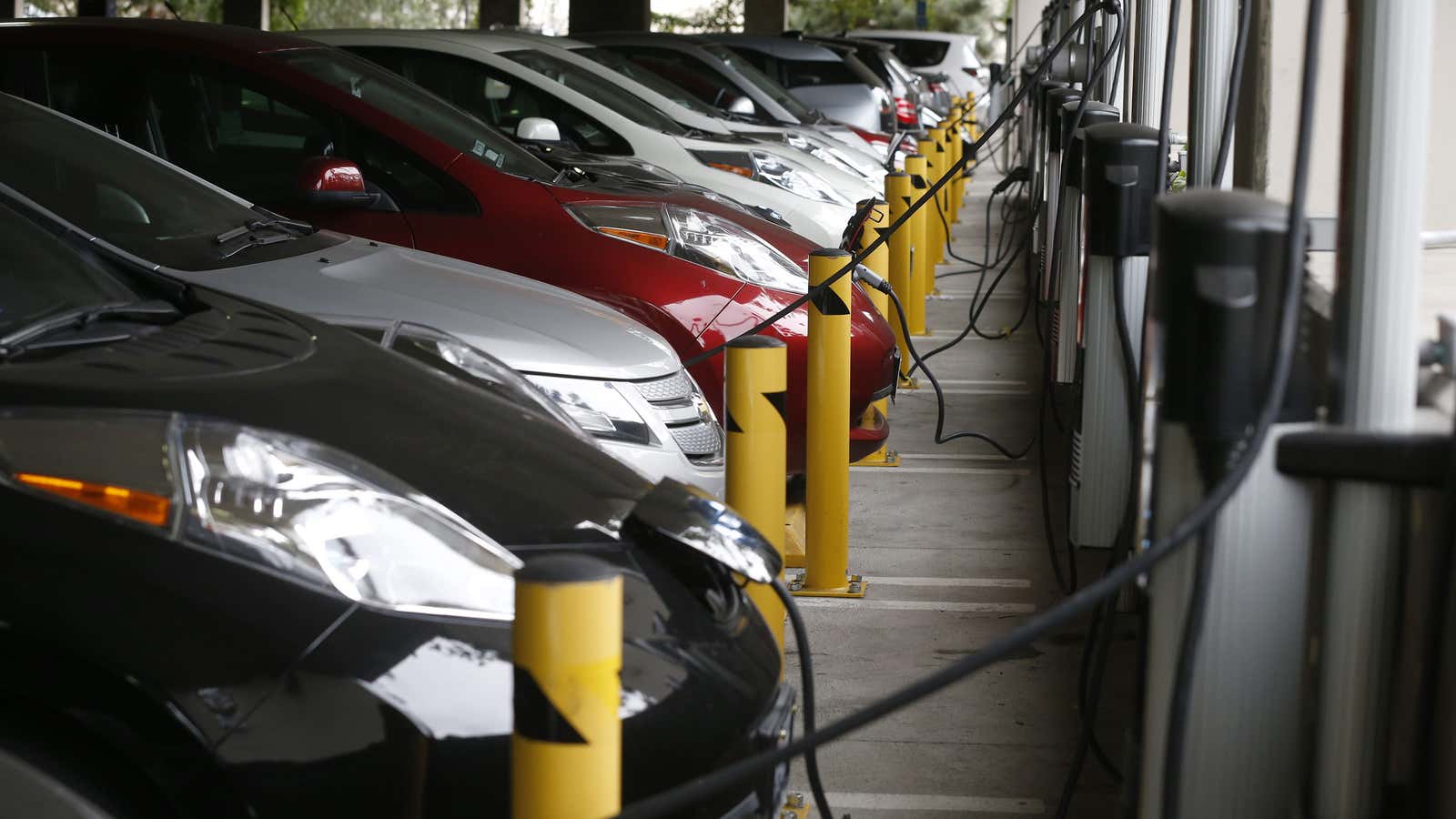One of the main factors holding back the electric car industry is the lack of fast-charging stations–there aren’t enough of them and those that exist take too long or aren’t conveniently located.
In a silver lining to its $14.7 billion fine in the dieselgate emissions scandal, VW is poised over the next decade to win a dominating stake of the American electric-car charging market. The proposed settlement requires VW, among other things, to invest $2 billion in the infrastructure for electric cars.
ChargePoint, a Silicon Valley firm that controls 30,000 electric car charging stations across the US, the country’s largest network of chargers, is challenging the settlement on the grounds that it would catapult VW into its biggest rival. In an interview, CEO Pasquale Romano said he has filed a brief with the court to amend the settlement, which could be finalized as early as this week. One suggestion: Split the money half-and-half between rebates for the installation of charging stations, and refreshing the $7,500-a-car federal subsidy fund for electric cars.
On Oct. 18, judge Charles Breyer said he is “strongly inclined” to accept the settlement as is, including the section involving charging stations. He added, however, “I want to consider the objections further to determine whether the Court should recommend any modification.” If the settlement proceeds, Romano said, it “effectively guarantees a lockup of the (car-charging) sector for awhile.”
The case is part of VW’s settlement of a US complaint that over a period of eight years the company rigged some 11 million diesel cars to fool emissions testing equipment. In many cases, the cars emit some 40 times the legal level of nitrogen oxides.
About 480,000 of the illegally equipped cars are currently on US roads, with the remainder mostly in Europe. The cheating scheme has hurt VW’s reputation as well as forced it to effectively abandon its diesel vehicle program in the US and rush into electrics. The company’s says electrics will make up 20%-25% of its total sales by 2025.
VW declined to comment beyond pointing to the judge’s remarks on Oct. 18. The Environmental Protection Agency, one of the primary plaintiffs, declined to comment.
